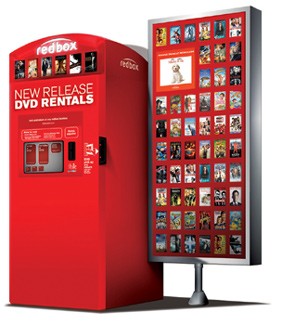Top Class Actions’s website and social media posts use affiliate links. If you make a purchase using such links, we may receive a commission, but it will not result in any additional charges to you. Please review our Affiliate Link Disclosure for more information.

According to the Redbox class action lawsuit, Robert Jahoda, a legally blind man, tried to rent a DVD using one of the kiosks at a nearby grocery store. However, since he could not “discern the visual cues,” neither he nor any other legally blind person can “independently browse, select and pay for DVDs at Kiosks, and instead must rely upon sighted companions or strangers to assist them.”
That becomes even more of a problem if a blind customer tries to make a purchase using the kiosk. As a result, they must give personal identifying information including credit card numbers and a zip code to complete the purchase. The company, according to the Redbox class action lawsuit, is in violation of the Americans with Disabilities Act, because “providing the auxiliary aids and services mandated by the ADA would neither fundamentally alter the nature of defendant’s business nor result in an undue burden to defendant.”
Jahoda seeks injunctive relief requiring that Redbox update its kiosks to be accessible to those who are considered legally blind by law as well as any statutory damages that he may be entitled to pursuant to the ADA.
It is not the only accessibility class action lawsuit that Redbox has faced, nor other media providers. In March, a California man alleged that the company failed to make it easy to find content with closed captioning for those who are hard of hearing and in fact did not identify when the feature was unavailable.
The Redbox lawsuit is not the first accessibility class action lawsuit filed by Jahoda. He has filed a class action lawsuit against Kay Jewelers and against other retailers, arguing that each company could easily update its point-of-sale devices to be accessible to the legally blind using Braille and auditory signals. Those other class action lawsuits note that the systems are already in use throughout the United States and in nearly every bank and financial institution to aid those with various disabilities complete their transactions without issue.
Jahoda is represented by R. Bruce Carlson, Benjamin J. Sweet and Stephanie K. Goldin of Carlson Lynch Sweet & Kilpela LLP.
The Redbox Kiosk Accessibility Class Action Lawsuit is Robert Jahoda v. Redbox Automated Retail LLC, Case No. 14-cv-01278, in the U.S. District Court for the Western District of Pennsylvania.
ATTORNEY ADVERTISING
Top Class Actions is a Proud Member of the American Bar Association
LEGAL INFORMATION IS NOT LEGAL ADVICE
Top Class Actions Legal Statement
©2008 – 2024 Top Class Actions® LLC
Various Trademarks held by their respective owners
This website is not intended for viewing or usage by European Union citizens.















One thought on Blind Man Files Redbox Kiosk Accessibility Class Action Lawsuit
Absolutely ridiculous. How did the blind man find the kiosk first of all? How does he operate his dvd player?
Frivolous lawsuits judges should throw out.